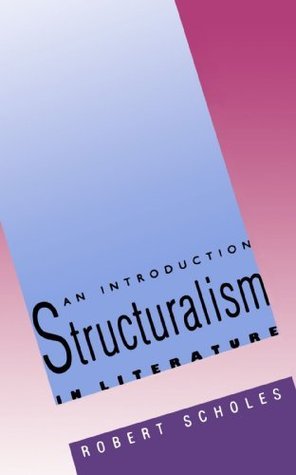In a day and age when the word "structuralism" is treated - inappropriately - with the same distrust as "Cartesian rationalism," it feels like Scholes' overview of the philosophical movement's influence on literary theory is much needed. To escape structuralism is a foolish gesture in the modern academy, as our post-structuralist and deconstructionist tendencies are founded in its premises.
Scholes provides a suitable backdrop for the important moments of the field: Piaget, Lévi-Strauss, the Russian Formalists, Propp, Barthes, Genette, Bremond, and so on. He even brings to light a few of the lesser-known structuralist-narratologists like Souriau and Greimas whose influence is nevertheless still felt. In the last chapter, Scholes performs his own structural analysis on the British Romantics and Ulysses - two subjects that test the structuralist hypothesis. His analysis is actually quite sustainable! In so doing, Scholes masterfully counters the argument that structuralism is "dry scientism", and brings to light the hidden poetry of the method.
My one grumbling with the book - and this is true for most other summations of structuralist thought as well - is his handling of Lévi-Strauss. By overemphasizing the conclusion of Lévi-Strauss' "Structural Approach to Myth", he misses out on the more exciting conversation the French anthropologist brings regarding myth and language - something that Barthes would later emphasize as well in his "Introduction to the Structural Analysis of Narrative." This common misreading - in my opinion - of the Lévi-Strauss essay unfortunately diminishes the value of his influence on structuralism as a whole. The bibliography corrects this, in a way, but briefly and fleetingly.
Altogether, Scholes collection is a useful starting point for those interested in narrative theory and modern structuralism. It provides all of the necessary background.

